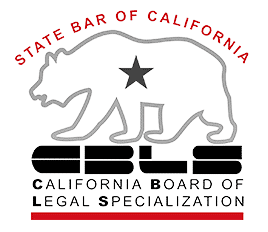Family Law Lawyer in Santa Barbara

Interspousal Fiduciary Duties
Few areas of California divorce and family law is changing as rapidly, or is having as great an impact upon property division and support obligations, as is interspousal fiduciary duties.
The decisions you make regarding you and your family in legal proceedings can affect you for the rest of your life. Family Law Lawyer in Santa Barbara at Drury Pullen Law is experienced in California family law and ready to help you through this difficult time. Call (805) 879-7523 or email us.
The penalties for violating a fiduciary duty can be severe. Fiduciary duty rules help to balance economic power in marriage and divorce. The accountability that the law of fiduciary duties add to the dissolution mix is a useful tool for combating marriage fraud by the other spouse.
In financial and property transactions with third parties and each other, spouses owe one another important statutory duties that create huge responsibilities and pitfalls. As between themselves, a husband and wife are subject to the general rules governing fiduciary relationships which control the actions of persons occupying confidential relations with each other. “This confidential relationship imposes a duty of the highest good faith and fair dealing on each spouse, and neither shall take any unfair advantage of the other.”
The essence of the “fiduciary relationship” is that the parties are treated under the law as though they do not deal with each other on equal terms because one person (typically the managing spouse) in whom trust and confidence is reposed and who accepts the trust and confidence is in a superior position to exert influence over the dependent party. A presumption of undue influence arises whenever either party benefits from the transaction over the other, however innocuous the circumstances may seem.
In 2002 the Family Code was amended to expand this confidential fiduciary relationship and impose the same rights and duties as applies to non-marital business partners under the California Corporations Code, and includes but is not limited to:
- Providing each spouse access at all times to any books kept regarding a transaction for the purposes of inspection and copying;
- Rendering upon request true and full information of all things affecting any transaction which concerns the community property.
- Accounting to the spouse, and holding as trustee, any benefit or profit derived from any transaction by one spouse without the consent of the other spouse which concerns the community property (i.e., all property acquired by a married person during the marriage).
One major consequence is that transactions which benefit only one spouse may be set aside by the other, either before or during a divorce proceedings.
As a practical matter for divorcing couples, this means:
- If one party has benefited over the other in a transaction involving money or property and thereby gained an advantage during the course of the marriage, the law presumes the advantage was gained through undue influence exerted on the part of the benefited party, and the transaction is presumed invalid and can be set-aside;
- The burden of convincing a Court that a set-aside should not occur then shifts to the advantaged spouse;
- All this can occur without regard to good or bad intent on the part of the advantaged spouse (i.e., actually intending to defraud as opposed to merely being sloppy). Either way the law declares the transaction to be the result of constructive fraud. Once the Court finds constructive fraud the transactions can be set aside, the benefited party can be ordered to pay restitution to the other and to disgorge any profits they alone received, title may be reformed to include both parties’ names, or the property may be held in trust for both on a present and go-forward basis rather than in the name of the one alone. If there is an actual fraudulent intent, the remedies to the injured spouse are more severe.
Remedies for breach of the fiduciary duty include an amount equal to one-half of the value of any asset undisclosed or transferred in breach of fiduciary duty, plus attorneys fees. This includes inadvertent or unintentional violations. Where a court comes to believe a spouse acted intentionally to defraud the other spouse, the Court “shall” award 100% of the value of what should have been disclosed, or what should not have been transferred, to the innocent spouse!
Contact Family Law Lawyer in Santa Barbara
The decisions you make regarding you and your family in legal proceedings can affect you for the rest of your life. Family Law Lawyer in Santa Barbara at Drury Pullen Law is experienced in California family law and ready to help you through this difficult time. Call (805) 500-7799 or email us.
